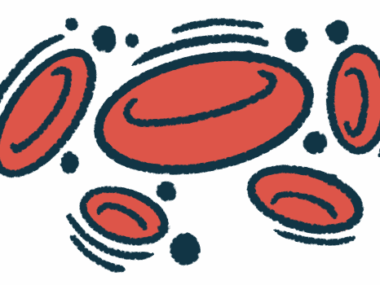Roche’s PiaSky treatment OK’d for adults, teens with PNH in Canada
Company maintains therapy will ease treatment burden for patients, caregivers
Written by |

Health Canada has approved Roche’s PiaSky (crovalimab) for treating paroxysmal nocturnal hemoglobinuria (PNH) in adults and adolescents, ages 13 and older, who weigh at least 40 kg (88 pounds).
The treatment is the first one approved in Canada that’s administered via monthly injections under the skin, or subcutaneously, and that can be self-administered by patients after appropriate training from a healthcare professional. Roche said it will work with provincial and territorial jurisdictions to make PiaSky available to eligible patients through public and private insurance plans.
“We are pleased to offer PiaSky as a new option to the treatment landscape for Canadians living with PNH,” Brigitte Nolet, president and CEO of Roche Pharma Canada, said in a company press release.
The company believes PiaSky will ease the treatment burden for people with PNH and their caregivers, and offer a more convenient alternative to other medications in its class that are given via infusions into a vein, or intravenously.
“With a self-administration option available for appropriate patients, as determined by their doctor, individuals can choose to treat their disease at home … and feel empowered to take an active role in their own care,” Nolet said. “This flexibility of administration may help reduce treatment burden for patients, their caregivers, and healthcare systems, and is part of Roche’s ongoing commitment to bringing Canadians new therapies that have a broader value to society.”
In PNH, the immune system’s complement cascade drives hemolysis, or red blood cell destruction, because the cells lack certain markers that would normally protect them from such immune attacks.
How does PiaSky work in PNH?
An antibody, PiaSky is designed to inhibit an important complement protein called C5, thereby preventing the complement activation that drives hemolysis and easing disease symptoms. This is a similar mechanism to other approved PNH treatments, including Soliris (eculizumab) and Ultomiris (ravulizumab-cwvz), both given via intravenous infusion.
Roche believes PiaSky offers similar efficacy, but with a more convenient dosing regimen. The first dose is given intravenously and is followed by four once-weekly subcutaneous loading doses, and by maintenance dosing thereafter.
Christopher Patriquin, MD, chair of the Canadian PNH Network, assistant professor and clinical investigator at the University of Toronto, said PiaSky’s clearance “provides further freedom of choice for patients with PNH.”
“Blocking C5 directly was the first approved strategy for treating such patients and this new drug will allow them another option,” Patriquin added. “They can now choose to get the disease-controlling treatment in small-volume, subcutaneous doses every [four] weeks and even, in appropriate cases, self-administer them.”
The therapy’s approval in Canada, along with earlier approvals in the U.S. and European Union, was largely supported by data from the Phase 3 COMMODORE 2 clinical trial (NCT04434092), which involved 204 people with PNH who hadn’t previously received a C5 inhibitor. In the study, once-monthly PiaSky and Soliris were similarly effective at managing PNH, including at controlling hemolysis and avoiding the need for blood transfusions. The treatment was also well tolerated.
Health Canada’s decision was met with enthusiasm from the PNH community, including the Canadian Association of PNH Patients. The organization’s president, Barry Katsoff, said PiaSky “has the potential to improve the quality of life for people living with PNH.”
“The potential for a more manageable, home-administered solution is especially meaningful for PNH patients whose daily lives are often disrupted by the demands of ongoing therapy,” Katsoff said. “Canadian patients welcome the introduction of [PiaSky] to our basket of options.”






